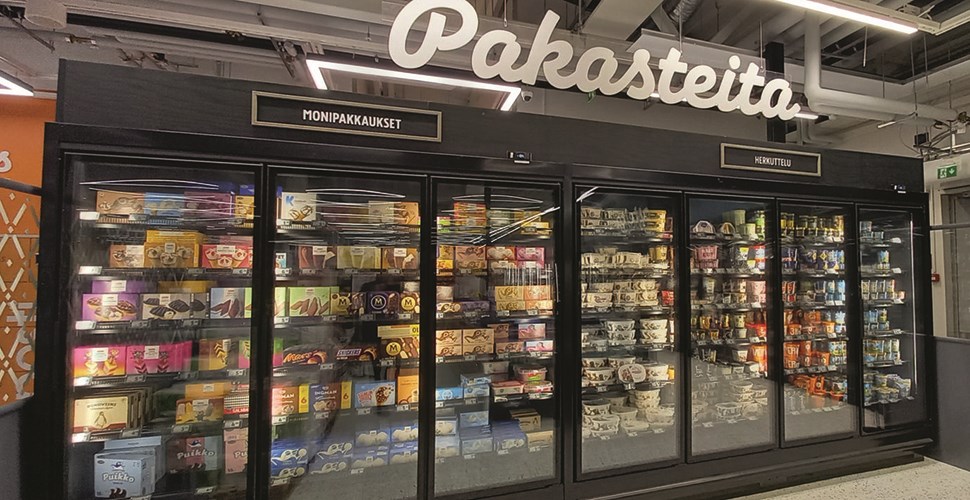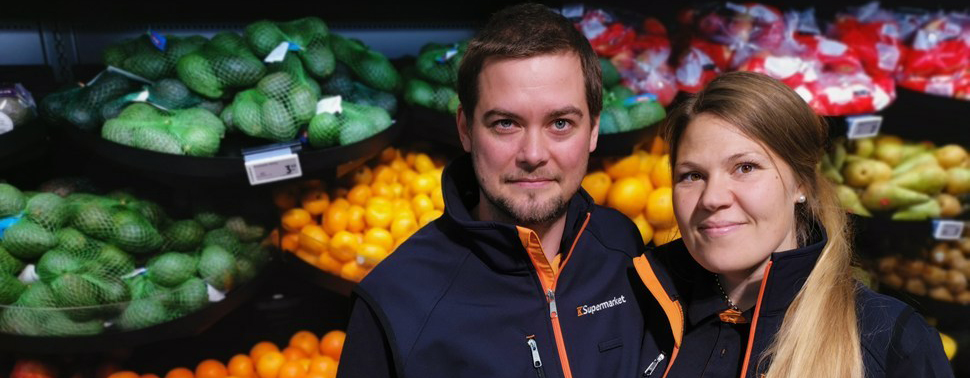
Noomi Järgerhorn (M.Soc.Sc.) has been appointed as Kesko’s Vice President of Sustainability. She will join the company on 1 May 2025, and assume her new position on 1 June 2025 at the latest.


Grocery stores use energy to keep dairy and fish products and frozen food at cold or freezing temperatures all the time. Installing modern, energy-efficient refrigeration units is one of the key ways in which K Group is improving its energy efficiency and reducing its emissions.
The renovation of K-Supermarket Piikkiö in Kaarina, Southwest Finland, included new refrigeration units, a heat recycling system that recycles waste heat and LED lighting that can be adjusted for each department.
“Our customers have praised the store’s new look and services. Although the costs of the refurbishment were high, the energy renovation is bringing significant improvement in energy efficiency and reducing emissions,” says Sampsa Mäki, the retailer at K-Supermarket Piikkiö.
Thanks to new refrigeration units, waste heat recycling and LED lighting, the total annual energy consumption of K-Supermarket Piikkiö is about a third lower than before the renovation.

K-retailers Sampsa and Rebekka Mäki in their store K-Supermarket Piikkiö.
Energy renovations and store refurbishments
K Group will develop its store network and services in many different ways in the coming years. Major energy renovations are usually carried out in the context of store refurbishments.
“Our heat recycling system is one of the most effective ways to reduce our heating energy consumption and the emissions from it. By recycling waste heat, we generate on average about 50 per cent of the heat demand of renovated stores,” says Antti Kokkonen, Kesko’s Vice President, Energy.
K Group’s heat recycling system efficiently utilises all the waste heat from the property, such as the condensate heat of the refrigeration system and the waste heat of exhaust air, as its energy source, and generates energy for all the heating and cooling systems in the property. The heat recycling system has already been installed in a total of 70 K-food stores.
At K-Supermarket Piikkiö, the heat recycling system has produced more than 220 MWh of heating energy in the first year, replacing purchased heat. The energy saved at the store through the heat recycling system is equivalent to the annual consumption of about 12 electrically heated detached houses.
Analytics to help monitor energy consumption
The key to maintaining an energy-efficient store is to monitor the operation of technical systems constantly and react to any anomalies quickly.
“AI-based analytics are already being used to analyse energy consumption in retail, and machine learning will certainly be applied even more in the future. With our analytics services, we identify and optimise the energy used in the cooling, heating and ventilation of our stores,” Kokkonen says.
 YES
YES
 NO
NO